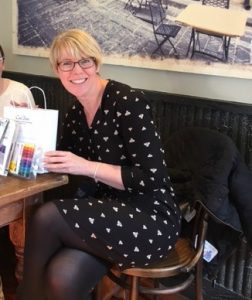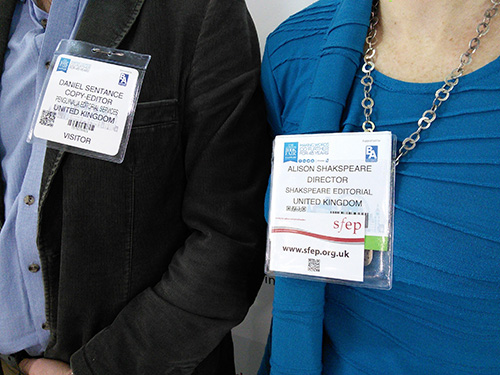 In this post, Sophie Playle looks at the practical elements of working with self-publishing authors.
In this post, Sophie Playle looks at the practical elements of working with self-publishing authors.
Note: This post has been written with editorial professionals in mind. As with any type of client, it goes without saying that it’s important your skills are fit for purpose. This post doesn’t go into the foundations of training and finding clients, but instead looks at what an editor might consider when working directly with self-publishing authors.
1. Assessing the project for the right service
The number one thing to remember about self-publishing authors is that most of them do not know much about the editing industry. Their main job is to write, after all. They’re often aware that they need editorial help to self-publish professionally, but are not sure exactly what this entails.
Many writers will think they just need a quick proofread to catch any typos when the reality is that most would benefit from a development edit and a copy-edit first. These terms are often unfamiliar to writers, and since there are so many editors offering slightly different variations of the same service (which is also often called something slightly different), a little confusion can only be expected.
Communication is key with self-publishing clients. (Well, all clients, really!)
Ask what the client wants to achieve, and what they expect from your service. Take a look at a sample of the work – this is crucially important. Remember: there are no gatekeepers here, so the quality of work will vary greatly.
If you believe the client’s expectations don’t quite match what the project needs, open a discussion on why you think this, and how you can help.
Alternatively, if you can’t help – for example, if the client really needs a development edit but you specialise in proofreading – decline the work and point them in the right direction, whether that’s to an editorial friend who offers a different service, or to the SfEP directory of editorial services, or some other resource.
2. Assessing the project for compatibility of style
This might be most relevant to fiction writers, but in my experience many self-publishing authors are looking for an editor who ‘gets them’. They want to feel that the project that they’ve poured their heart and soul into, possibly over the course of several years, is in safe hands and that the editor isn’t going to mess it up.
An independent author doesn’t have the assurance of a publishing house that you’re going to do the best job. They only have their own assessment of you and your editing skills – based on recommendations and what they’ve gleaned from your public professional presence. They want to know they’ve made the right choice.
In fact, the client’s freedom to choose a compatible editor with whom to work is a benefit traditionally published authors often don’t get.
It’s in the editorial professional’s best interest, too, to work with compatible clients. For development editors, this might mean working with an author in your genre of interest. For a copy-editor, this might mean working with an author whose style you understand. There’s nothing more horrifying to a writer than to receive an edited manuscript in which the editor has stripped out all nuances of their voice.
Working with compatible clients means you can do your best work, and your client will feel they are in good hands.
How do you assess for compatibility? You might want to offer a sample edit – paid or free, that’s up to you. You might want to get to know your client and find out more details about their project through email or phone conversation before you commit to working with them.
There are lots of ways to go about this. The result should be that both you and your client feel confident that you understand each other.
3. Setting boundaries and looking after your client’s emotional needs
Self-publishing authors often require a little more reassurance and communication from their editors. They usually don’t have an agent or a publisher to answer their questions – they rely on you for your professional knowledge of the industry.
You’re often their main professional contact, and this means they have one burning question they want to ask you: ‘Is my work any good?’
I’ve heard varying opinions from freelance editorial professionals on whether or not we should pass judgement on a self-publisher’s work. Do we refuse projects if we think they are of unpublishable quality? Or should we simply do the job we’re being paid to do?
Editors are not gatekeepers
On the one hand, we are not gatekeepers. And whatever we say in response to this question would be purely opinion. (If I’d been asked whether 50 Shades of Grey would have been a success, I’m confident I would have said no!) We’re being paid to conduct a service, and so that’s what we should do. The rest is out of our control.
On the other hand, if a self-publisher asks for our thoughts or hires us for our professional skills, don’t we have an obligation to pass on our professional opinion? Isn’t that what they’re paying for? (Or should they only expect this if they’re paying for a critique?)
It’s a conundrum. There’s no right answer. My one tip? Make sure you communicate with your author. Don’t offer unwanted criticism (or unwanted mollycoddling), and let your author know your stance on the issue before you begin working together.
Be clear on your professional boundaries from the outset. You’ll be working directly with the creator, and this person will be emotionally invested in the project and possibly not have much experience of navigating the publishing world as a professional business owner (a hat self-publishers must decide to wear if they want to be successful). Clear terms and conditions are key. Look after yourself, as well as your client.
Conclusions
In summary, self-publishing clients have slightly different needs to other kinds of clients, and these should be taken into consideration. The main things to think about are whether they are commissioning the best service for their project, whether your editing style is best matched to their writing needs, and the emotional and professional boundaries you will address in the working relationship.
When it comes down to it, these are all issues of consideration and communication. I hope these pointers will help you and your self-publishing clients get the most out of your work together.
 Sophie Playle, of Liminal Pages, is a freelance editor who specialises in fiction and often works directly with writers. For brownie points, connect with her on Twitter and LinkedIn. (Please note: No real brownies or points will be awarded.)
Sophie Playle, of Liminal Pages, is a freelance editor who specialises in fiction and often works directly with writers. For brownie points, connect with her on Twitter and LinkedIn. (Please note: No real brownies or points will be awarded.)
Proofread by Samantha Stalion.
Photo credit: kodomut
The views expressed here do not necessarily reflect those of the CIEP.
Originally posted in January 2015; last updated February 2022.
 We’ve just had our annual Christmas lunch, always a popular event, with thirteen attendees. We spent an enjoyable couple of hours eating, chatting and drinking a very welcome glass of prosecco bought by a member who couldn’t join us in person – thanks, Mike!
We’ve just had our annual Christmas lunch, always a popular event, with thirteen attendees. We spent an enjoyable couple of hours eating, chatting and drinking a very welcome glass of prosecco bought by a member who couldn’t join us in person – thanks, Mike! Victoria Woodside is enjoying her second career working as a freelance editor and proofreader in between caring for her four little people. She likes nothing better than a roaring fire and a glass of red on these cold winter nights. You can find her at www.proofreaderni.com, on Facebook as ProofreaderNI or on Twitter @vicproofreader.
Victoria Woodside is enjoying her second career working as a freelance editor and proofreader in between caring for her four little people. She likes nothing better than a roaring fire and a glass of red on these cold winter nights. You can find her at www.proofreaderni.com, on Facebook as ProofreaderNI or on Twitter @vicproofreader.















